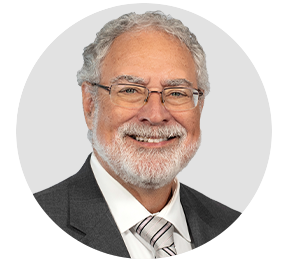
Every Church Regardless Of Size Needs A CFO
Posted on March 31, 2020 by Phil Elworth
Every Church Regardless of Size Needs a Chief Financial Officer
I once heard a good definition of a CFO, someone who solves a problem you didn’t know you had in a way you don’t understand.
There is some truth in this statement but in actuality a CFO really looks to the future and helps you to understand the problems you didn’t know you had or better yet helps you avoid the problems altogether. The CFO is a senior leader who deals with all the business areas of the church, proactively involved so that the decisions affecting the financial affairs of the church are handled on task and on target.
Every organization deals with risk, the CFO understands and quantifies this risk and seeks to mitigate it. For example, 2009 most likely will turn out to be a very down year for contributions, how will your organization deal with this and when? The speed and clarity of these decisions will impact the viability of your church.
It is the role of the CFO to review expenses to determine not only are they authorized, but also in line with the budget and appropriate to the mission and direction of the organization, while tracking trends to respond appropriately to changing risk. Similarly, the CFO keeps an eye on the infrastructure (the support systems needed for everyday tasks) that is in place to determine their adequacy for the church to function efficiently. These systems allow for timely and accurate reporting to leadership. Teaching, mentoring and infusing financial intelligence to all levels of the organization allows the CFO to develop accountability and understanding of the financial impact of decision making to the organization as a whole.
Maintaining banking relations, creating and balancing the budget, providing cash flow projections and strategic planning are key responsibilities of the CFO. According to Brian McAuliffe, the CFO of Willow Creek Community Church in South Barrington, IL, it is not just working within the guidelines of the budget but it is keeping enough cash on hand to deal with the normal cyclical nature of contributions. Brian says “he makes sure that Willow has 2.5 months of cash on hand to deal with normal cycles”. All in all the church needs the same skill sets that every business needs to be successful.
Bill Hybels, senior pastor at Willow Creek Community Church says of the CFO “I knew that every hour I spent on [the CFO] part of the ministry was keeping me from sermon preparation, leadership development and long range planning. So from the earliest days of my ministry I challenged gifted volunteers to help me with the CFO responsibilities”. Bill goes on to say that when “we were able to hire a full time CFO we surrounded them with Board members who could ask the tough questions of the CFO and sharpen our collective thinking”.
At B2B CFO®, a national firm engaged in providing part time CFO services to emerging organizations, we have a saying that cash is key. The success of any church depends on its ability to raise cash and manage its use strategically to fulfill the mission. The graphic below shows what we at B2B CFO® call the “Danger Zone”, the point where any organization crosses the line and their costs outstrip their ability to raise cash.
When this occurs the organization is in desperate trouble. Understanding where this line is for your church is a critical role of the CFO. I have served for 24 years at Willow Creek Community Church initially as a volunteer CFO and later as chairman of the board finance committee. During this 24 years the church grew from $3 million in assets to where it is today at $146 million in assets and $40 million in annual operating budgets.
During this growth period we operated with an eye on the danger zone. We would prepare a realistic budget but would spend based upon the actual dollars that came in. If contributions came in more slowly than anticipated we would put off expenditures until the revenue justified the added costs. If we beat the budget and generated excess cash, we would set up reserves to be used strategically in the future. I might add that for 2009 Willow Creek lowered their operating budget by around 5% in anticipation of a down economy. We did this even though 2008 saw record levels of contributions. Establishing and maintaining fiscal responsibility is another key role of the CFO.
A common problem with any growing organization is one of getting the infrastructure in place and appropriate for the level of growth. As Bill Hybels said “most pastors are not frustrated accountants”; [they just frustrate accountants]. Michael Foos, a B2B CFO® partner and volunteer CFO at Rolling Hills Christian Church in El Dorado Hills, CA, a church of 2,000 attendees, described his initiation to the volunteering role which was initially to secure $11 million in financing for a new auditorium and “manage the books for the church”.
Michael observed fairly quickly, that financial reporting was rarely completed, nor was it being compared to the budget. Little or no internal controls were in place to authorize and approve expenditures. The church had not received their 501(c)(3) letter from the IRS. Little analysis had been completed to justify the anticipated debt level for the new auditorium, not to mention there was no banking relationship yet established with potential lenders.
Michael initiated the process and established the proper infrastructure and controls while proceeding to obtain the financing needed to complete the project. Michael says “I believe CDF approved the loan partly because they had developed an understanding of the project and the team and they believed in the numbers we provided them. The belief in those numbers came from our ability to show the historical growth and giving patterns, a logical, rational forecast that had integrity and my demonstrated financial experience”. Every church regardless of size needs a CFO.
There are three main sources for a church to consider when filling this role. You could hire a CFO on a full time basis. According to Brian McAuliffe when a church’s revenue reaches the $4 million mark they need someone on staff full time. Finding a qualified CFO for the level you can afford may be a challenge. A second option is to utilize a volunteer, either as the CFO or to supplement an employee who is not yet seasoned enough to execute the entire job. A third option is to hire a part time CFO from B2B CFO® or another local source, to be the CFO or to act as a mentor or advisor to a less qualified candidate. The benefit of hiring a part time CFO is the speed with which they can tackle the issues and bring resolution to the problem.
As you can see from the description above the requirements for this position are extensive. I believe that every church should find high caliber individuals already in their congregations and offer them opportunities to serve at a level that is fulfilling to them and to the organization. The CFO role is very appropriate place for this to occur.
However you chose to fill the role, every church regardless of size needs a CFO.
Philip E. Elworth is a partner in the firm of B2B CFO® in Chicago. Phil has also served on the board of directors of Willow Creek Community Church for over 24 years.

